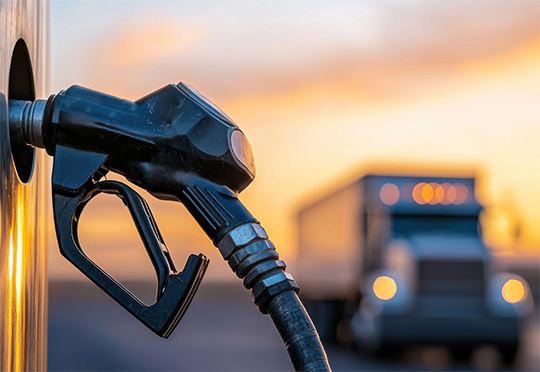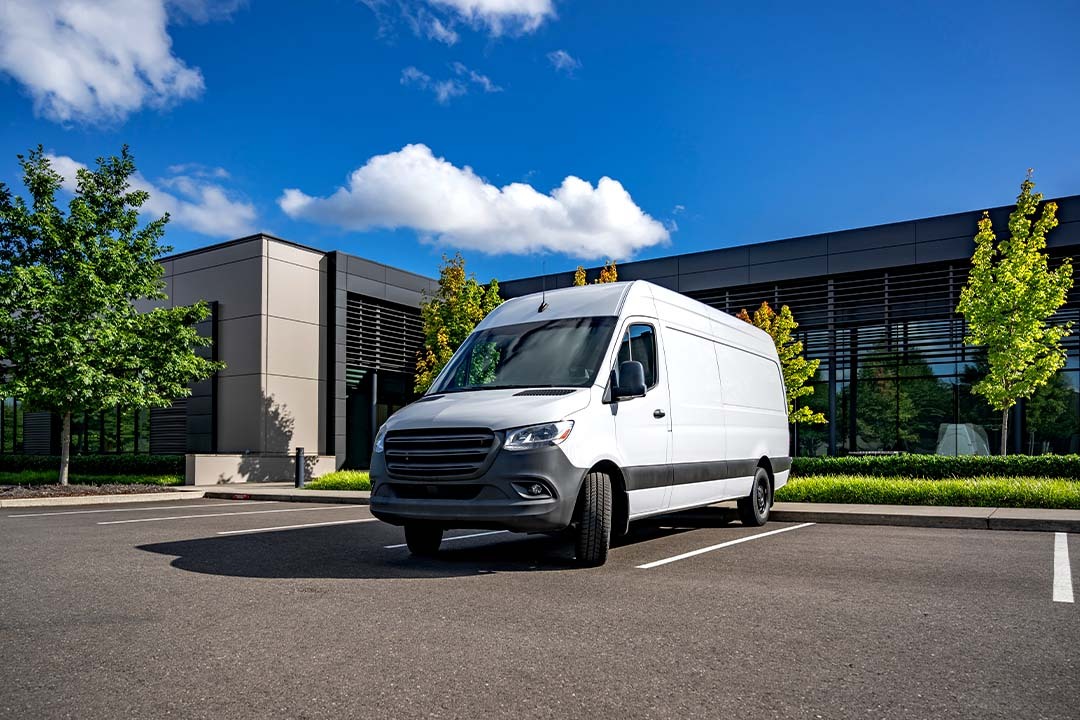
How to Spot and Stop Fuel Shrinkage
For most fleet-based businesses, fuel is one of the biggest operating expenses. But what if a big chunk of that spend is quietly slipping away and you don’t even know it?
Fuel shrinkage, or the amount of fuel you’re paying for versus how much you actually receive from things like misuse, fraud, and inefficient driving, could be costing your business up to 11% of your fuel budget.
In a recent webinar, we sat down with RoadFlex to discuss ways to identify fuel waste and what fleets can do to stop it. Here’s a breakdown of what to look for and how technology solutions like Linxup and RoadFlex can help you stop unnecessary fuel expenses.
What fuel shrinkage looks like
Fuel shrinkage isn’t just one problem, which is why it’s harder than ever to spot. It’s a combination of small issues that add up to major costs.
These can include:
- Misuse – This can be employees filling up personal vehicles or gas cans, or using fuel cards for unauthorized purchases.
Misallocation – This happens when fuel card expenses are being charged to the wrong vehicle or job, making it impossible to track accurate costs.
- Fraud and theft – This can include card skimming, fuel siphoning, fuel card accounts being hacked online, or lost or stolen cards being used by someone outside of the company.
- Hidden fees – These are buried charges hidden in your credit card agreement. The most common are inactivity fees, insurance fees, statement fees, or out-of-network fees for using fuel stations not found on an approved list.
“According to Shell’s Fraud Matters report, 38% of drivers say they’ve seen a coworker commit fraud, and 86% of fleet managers believe it’s happening in their own operations. Fuel shrinkage can add up to 11% of your total fuel spend — making it the second-highest fleet expense after payroll.” – Mary Akhavan, RoadFlex
When combined, these factors add up in a big way. You may be unknowingly losing up to 11% of your total fuel spend due to fuel shrinkage.
Driver habits can cost you too
Not all fuel waste comes from fraud. It can also be the result of everyday driving habits that go unchecked. Individually, these may not seem like a big deal, but across a fleet, they can cost you in fuel shrinkage and also cause more wear and tear on your vehicles — adding yet more unnecessary expense.
Common driving behaviors with a big impact include:
- Long idle times
- Harsh braking and rapid acceleration
- After-hours vehicle use
- Inefficient routing
Luckily, fleet management solutions can help you spot these habits early and help your drivers improve them. By using tools like vehicle dash cams and GPS fleet tracking, combined with driver coaching, you can create awareness of these habits and build accountability.
“Just letting drivers know these systems are in place usually improves behavior immediately.” Joe Marcotte, Linxup
One Linxup customer, Tri County Sweeping, thought they were dealing with fuel fraud. After digging into the data, it turned out the real issue was erratic driving. By leveraging GPS and video insights for the full story, they were able to coach drivers and get costs back under control.
What’s hiding in the fine print
Driver behavior and fuel card fraud or misuse are only part of the problem when it comes to fuel shrinkage. Your fuel card agreement could be costing you more than you think, with fees buried in the line items of your contract, inefficient spend tracking, or no real-time visibility into card activity.
“It is impossible to reconcile in the rearview mirror. If you get your statement 30 or 60 days down the road and you need to reverse engineer the line items on the statement or kind of dig around to find out what the actual fees that you're being charged for are, separate to what the actual fuel costs are, it can it can just be one of those uber frustrating moments um for your admin team or your accounting team and ultimately it's just as a loss.” – Mary Akhavan, RoadFlex
When choosing a fleet card, here are a few things to look for before you sign an agreement.
Universal acceptance should be a priority. If your drivers are confined to only choosing fuel stations within a certain network or geography, you could be losing time and money.
Beware of hidden fees. Sneaky line items can cost you in a big way. The list of fees to watch for keeps growing, but some to lookout for include transaction fees, per-gallon fees, out-of-network fees, and even fees to pay your bill online or speak to a customer service representative. Take the time to read the fine print before applying or accepting a fuel card agreement.
Customizable spending controls that allow you to manage how much drivers can spend or where they can fuel up helps you manage your margins and prevent fuel shrinkage. Look for a card that lets you set limits by amount, location, or merchant type to keep fuel spending on budget and in-policy.
Know who to call when you need help. Choose a fuel card provider that offers real, accessible support by phone, email, and/or chat. Make sure they’re accessible around the clock to get problems resolved quickly.
Fuel control starts with real-time visibility
Fuel shrinkage is hard to stop if you can’t see it happening. That’s where the Linxup and RoadFlex partnership makes all the difference. You get real-time visibility into driver behaviors and every fuel transaction, so you can take action fast.
Instead of waiting until the end of the month to catch mistakes, Linxup and RoadFlex work together to help you verify transactions in real time.
Things like:
- Confirming the vehicle is at the pump before authorizing fuel
- Checking tank levels to prevent overfilling or siphoning
- Flagging out-of-policy purchases instantly
If something doesn’t look right, the transaction is automatically blocked and the admin is notified — saving you from detective work when the statement comes in.
But preventing shrinkage isn’t just about catching fraud, it’s also about coaching smarter driving habits. Linxup’s fleet GPS tracking and AI-powered dash cams let you monitor things like idling, harsh acceleration, and speeding so you can coach drivers in real time, helping them adjust before it becomes an expensive habit.
“A good starting point is simply seeing how well your vehicles are performing against their expected MPG. If it’s off, there’s probably something you can coach right away.” – Joe Marcotte, Linxup
Take back control of fuel costs
Fuel shrinkage can be an expensive problem. But you can’t fix what you can’t see. With the right data and tools, you can quickly stop fuel shrinkage before it turns into a bigger drain on your bottom line.



